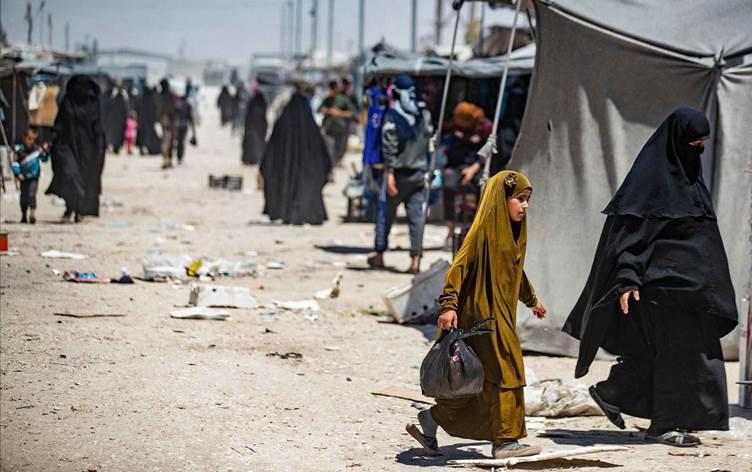
Iraq to repatriate over 700 ISIS-linked people from Rojava
The Iraqi government is repatriating more than 700 people affiliated with the Islamic State (ISIS) from al-Hol camp in northeast Syria (Rojava), the migration ministry said on Saturday.
Ali Abbas, spokesperson for Iraq’s ministry of migration and displaced, said that they will repatriate 750 Iraqis from al-Hol camp.
“Due to security reasons, we cannot reveal the date of their return, but it will be later this month,” he told Rudaw’s Nahro Mohammed.
A group of some 165 families, totaling more than 700 people, have left al-Hol camp and are expected to arrive in al-Jada camp in Nineveh province within the coming two days, an Iraqi lawmaker who closely monitors the matter told Rudaw English on Saturday.
The MP, who spoke on the condition of anonymity, said that more people were registered to be repatriated but some chose to stay in Syria.
Abbas told Rudaw last month that a total of around 2,000 families, or 8,000 individuals, have been returned to Iraq from al-Hol camp so far.
Iraqis and Syrians make up the majority of the 40,000 ISIS-linked people who have been held at al-Hol camp in northeast Syria’s Hasaka province since the defeat of the terror group in 2019. The camp has been branded a breeding ground for terrorism. Iraqi National Security Advisor Qasim al-Araji last month said that around 20,000 Iraqis below the age of 18 are still at al-Hol. He described them as “time bombs.”
Kurdish authorities in northeast Syria have repeatedly called on the international community to repatriate their nationals from the camps, but their calls have largely gone unanswered as most countries are unwilling to bring back their citizens due to security concerns.
Tajikistan on Thursday repatriated 50 people, which was commended by the United Nations International Children’s Emergency Fund (UNICEF).
UNICEF said on Friday that it “works with countries including Tajikistan to support the reintegration of children back to their countries of origin, aligned with their citizenship.”
Source » rudaw.net





